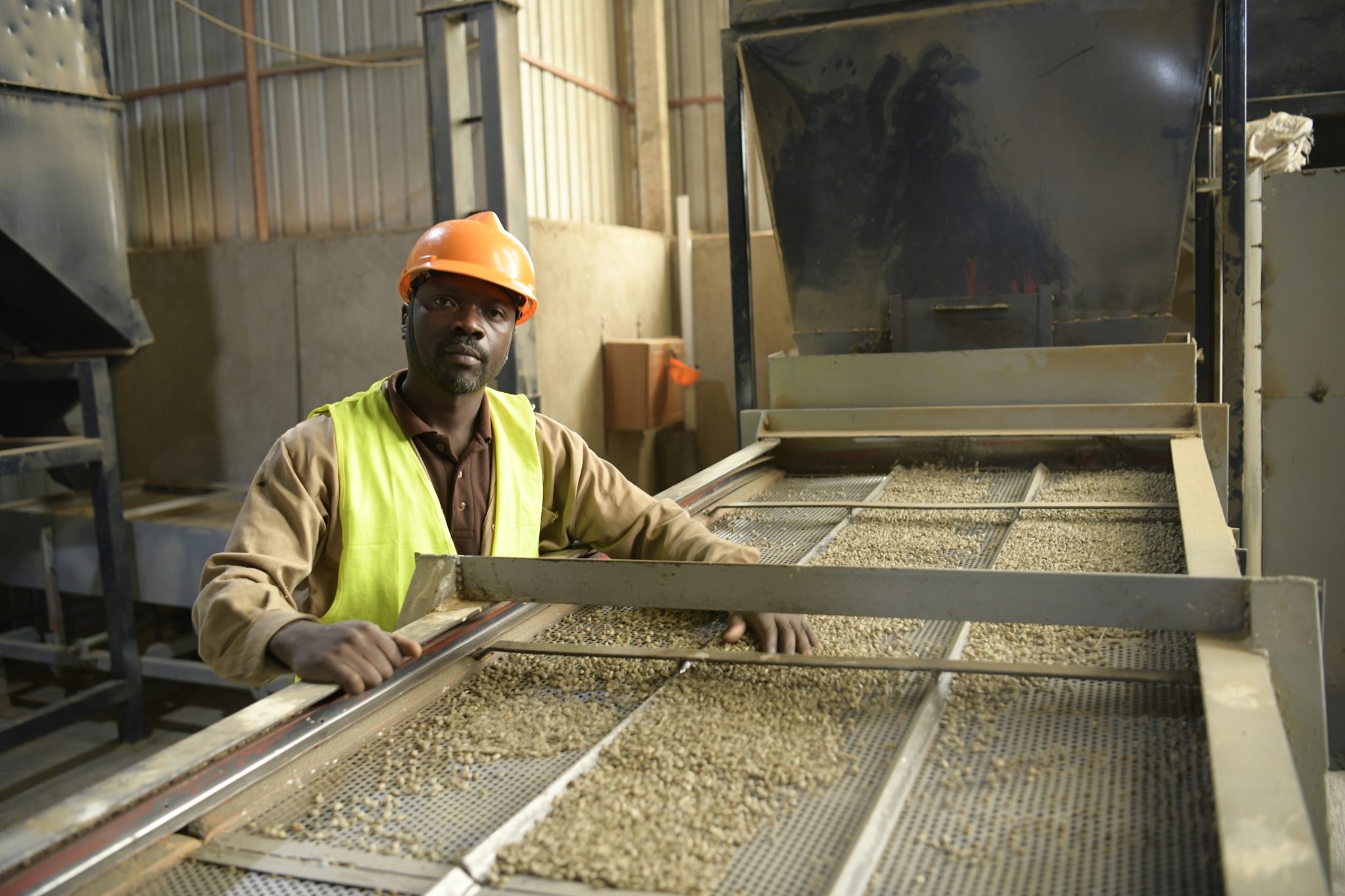Kigasali Coffee Company LTD
Kigasali Coffee Company was founded in 2016 to process coffee from farm to export and now contributes to Rwanda’s estimated 20,000-ton annual coffee export industry.
With six washing stations across four districts, Kigasali collects washed coffee and transports it to its headquarters in Kigali, where the beans are sorted, graded, and processed. After drying, the beans are hand-selected by teams of women before final processing, with coffee husk waste separated and stored. Kigasali employs over 200 permanent staff and 300–400 seasonal workers across Rwanda, with 90 percent of its workforce consisting of women.
Kigasali Coffee Company continuously looks for ways to improve product quality and cost-effectiveness, especially by reusing coffee waste. Recently, they began using fresh coffee pulp to produce organic fertilizers. While they previously sold much of their waste to other farmers, after CIRF training, the company started seeking new opportunities to generate income through circular practices.
“We have been trained, we managed to understand that it is our concern to eliminate all kinds of waste from our activities. And, from that waste, we can make a product which can be sold to increase the revenues of the company,” says Japhet Habimana, Communications Director.
Coffee waste and pulp are also being transformed into pellets and briquettes—biofuel alternatives that are less harmful to the environment than traditional firewood stoves.
“In the future, we will no longer sell this husk as waste; it will produce something else, like making pallets or briquettes,” explains Marie Therese Nyampinga, Coffee Selection Overseer.
Firewood is the primary cooking fuel in Rwanda, but its environmental and health consequences have led the government to push for cleaner alternatives, creating a market opportunity for Kigasali to develop new products from coffee waste.
Inspired by CIRF training, the company now views waste as an opportunity.
“For the coffee processing, when we take the cherries, we do the pulping by using water. We proceed also by the fermentation and washing—we use water. For grading, we use water. For soaking, we use water. After one day, we have the coffee, we have the wastewater—it is a waste that we can see how we can reuse to minimize or manage the cost of production.”
The company is committed to aligning circular practices with its overall business goals to increase revenue and sustainability.
“After being aware about the circular economy, we realized that we have to sit and see what we can do, like water recycling. We can take the pulps, we can make compost, and that compost will be used in the coffee farming, contributing to increased production in quality and quantity.”

